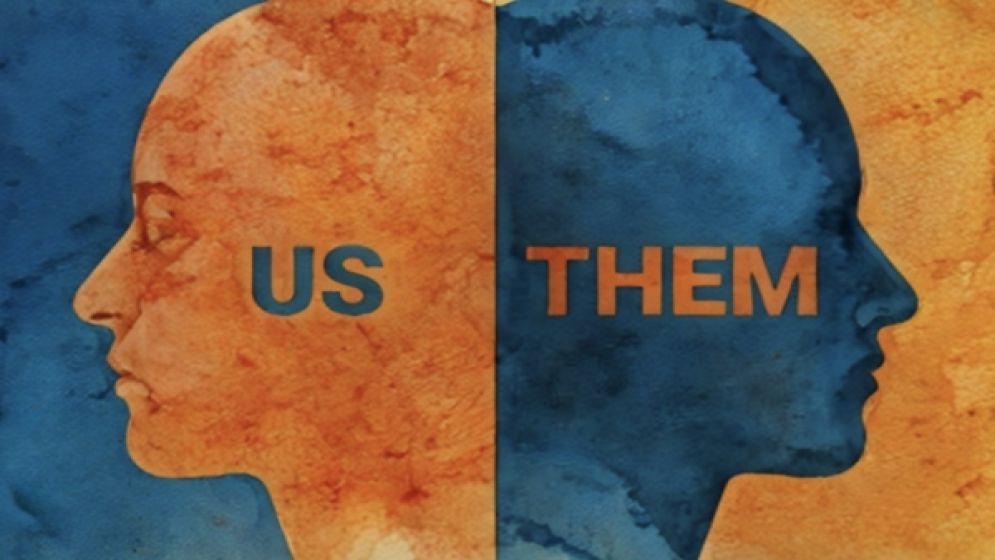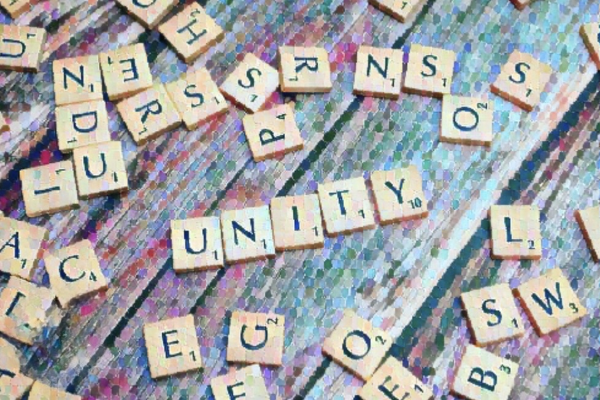Bangladesh’s democratic discourse is suffocating in a binary trap

Bangladesh’s political crisis is not just about corruption or governance; it is about a nation that has allowed parties with blood on their hands to remain in the democratic arena without ever facing a reckoning.
Both the Awami League and Jamaat-e-Islami carry the stain of mass violence. Yet, instead of systematic justice, they have been permitted to reinvent themselves in broad daylight, and the consequences are slowly unfolding.
Some argue that Jamaat’s return to open politics is, paradoxically, a gift. When its leaders publicly sneer at the Liberation War or dismiss genocide, they reveal themselves, and in doing so, cancel themselves. That may be true. But it begs the question: a gift to whom?
Apply the same logic to the Awami League and the pattern is unmistakable. Having ruled for nearly two decades, the party is now preparing to deploy every ounce of its “soft power” to recast its legacy.
Expect historical revisionism and the laundering of atrocities–whether by downplaying the July massacres or by reframing their authoritarian excesses as “governance.”
Their desperation is predictable: when a political brand is anchored to mass killings, survival requires disinformation.
This is what I call “tafaling-er politics”--politics as mischief. And it leaves the rest of the political class with an easy out. BNP, NCP, and others need not bother with the messy work of real policy: fighting inflation, tackling corruption, amplifying their mass appeal, and reforming institutions.
They can simply position themselves as “not Awami League, not Jamaat,” and their job is done. Their opponents will do the same, hurling accusations of being stooges or sympathizers. Debate collapses into yes or no, friend or foe.
It is, in effect, a politics of subtraction. I would use the phrase Shoja Politics–simple politics–borrowing from the “Shoja Bangla” linguistic movement that stripped the Bengali script of its complexities.
In this stripped-down politics, nuance disappears, and only the re-litigation of old crimes remains. The nation’s future is stitched and restitched on the same fraying seams, like a pair of pajamas endlessly patched but never renewed.
Bangladesh cannot build a democracy on mischief and negation. Until its politics demands accountability for violence–not denial, not reinvention–the country will remain trapped in this shallow cycle of “Shoja Politics,” where the simplest answers are also the most dangerous.

A dead place for critical thinking
But Shoja Politics–this politics of subtraction and mischief–comes at a steep cost. Call it Kothin Politics–the difficult politics–for those who hope to push the nation toward constructive discourse on its systemic problems.
I’ve learned this firsthand. My own attempts to sustain long-form writing on Bangladesh’s political psychology and philosophy have collided with the same wall over and over: when there is clear demand for serious analysis but almost no supply, it usually means a syndicate is choking the pipeline.
In Bangladesh, the market for ideas is not just underdeveloped; it is cartelized.
Try to make a living writing serious political commentary, and you’ll quickly see how impossible it is. The space is monopolized by “Bhai-Brother” companies–tight, informal networks who survive on patronage, either domestic or foreign.
The result is a suffocating agenda economy: if your words don’t serve a party, a donor, or a client, they won’t see daylight. What remains in the conventional media is intellectual junk food–speculative trivia and brain rot: “What was Bangabandhu thinking when he was shot?” “Who exactly is laundering the country’s money?”
This is not just my frustration. I’ve watched gifted friends–people who can dissect political structures with precision–try to monetize their work, only to fail.
They treat their sharpest ideas as unpaid side projects. And they’re not outliers. The majority of those who still write without an overt or covert partisan brief do so with no expectation of compensation. Civic duty is their only paycheck.
I am no exception. My own audience is small, my publishing scattered. But the broader crisis is undeniable: Bangladesh’s democratic discourse rests precariously on the unpaid labor of hobbyists like me, working after hours, in between jobs, or at the expense of sleep.
The “thought-products” that emerge in such a system are inevitably shallower, less rigorous, and less sustained than they should be.
And this is unsustainable. As people age, responsibilities crowd in. Economic pressure suffocates intellectual generosity. The quantity and quality of critical writing will inevitably decline.
Without institutions and without continuity, every new generation will be forced to start from scratch. They won’t stand on the shoulders of giants–or even of people of normal height.
They’ll stand, if at all, on the bent backs of exhausted citizens, hunched under the weight of survival.

The cost of flawed politics
This is the hidden cost of Shoja Politics. A country that refuses to resolve its foundational crimes and reduce politics to yes-or-no tribalism does more than degrade its discourse. It destroys the very soil from which a deeper civic intelligence might grow.
The readership for civic communication in Bangladesh is just as fragile as its writers. As I’ve noted before, people here are overworked and overspent. For a vast segment of the population, Facebook is an escape hatch rather than a public square.
In most societies, no one would expect to find deep political philosophy thriving on a social media feed. In Bangladesh, it exists only because a handful of us forced it into being–relentlessly carving out space in comment threads, tolerating sneers like, “Why so long?” or “This went right over my head.”
The truth is brutally simple: the writers of critical discourse are poor, and so are the readers. We have little time to write; they have little time to read.
There is no real incentive to produce serious work, no real space to publish it, and almost no infrastructure to sustain it. Critical discourse in Bangladesh exists only in tiny, fragile pockets.
And into these limited pockets has crept the most corrosive subject of all: denial of mass killings. Both Awami League and Jamaat–the twin pillars of Bangladesh’s political soft power–carry the burden of blood.
Instead of reckoning with it, they expend their strength hijacking what little space remains for genuine discourse. Our scarce intellectual energy is diverted into their grotesque tug-of-war over history: who killed how many, who denies what, who mocks which massacre.
The consequence is paralyzing. If I refuse to participate, I feel ethically irresponsible, complicit in silence. If I do participate, I feel economically foolish, wasting time and effort in a debate designed to go nowhere.
This is the trap. By allowing these two shameless forces to escape systematic justice, Bangladesh has condemned its democratic conversation to a binary cul-de-sac.
Every discussion becomes a proxy battle in their war of denial. And if this continues, we will never escape it. Our politics will remain chained to their past crimes, our discourse reduced to a recycled argument with no exit, no evolution, and no future.
—
Mikail Hossain is a writer and analyst

